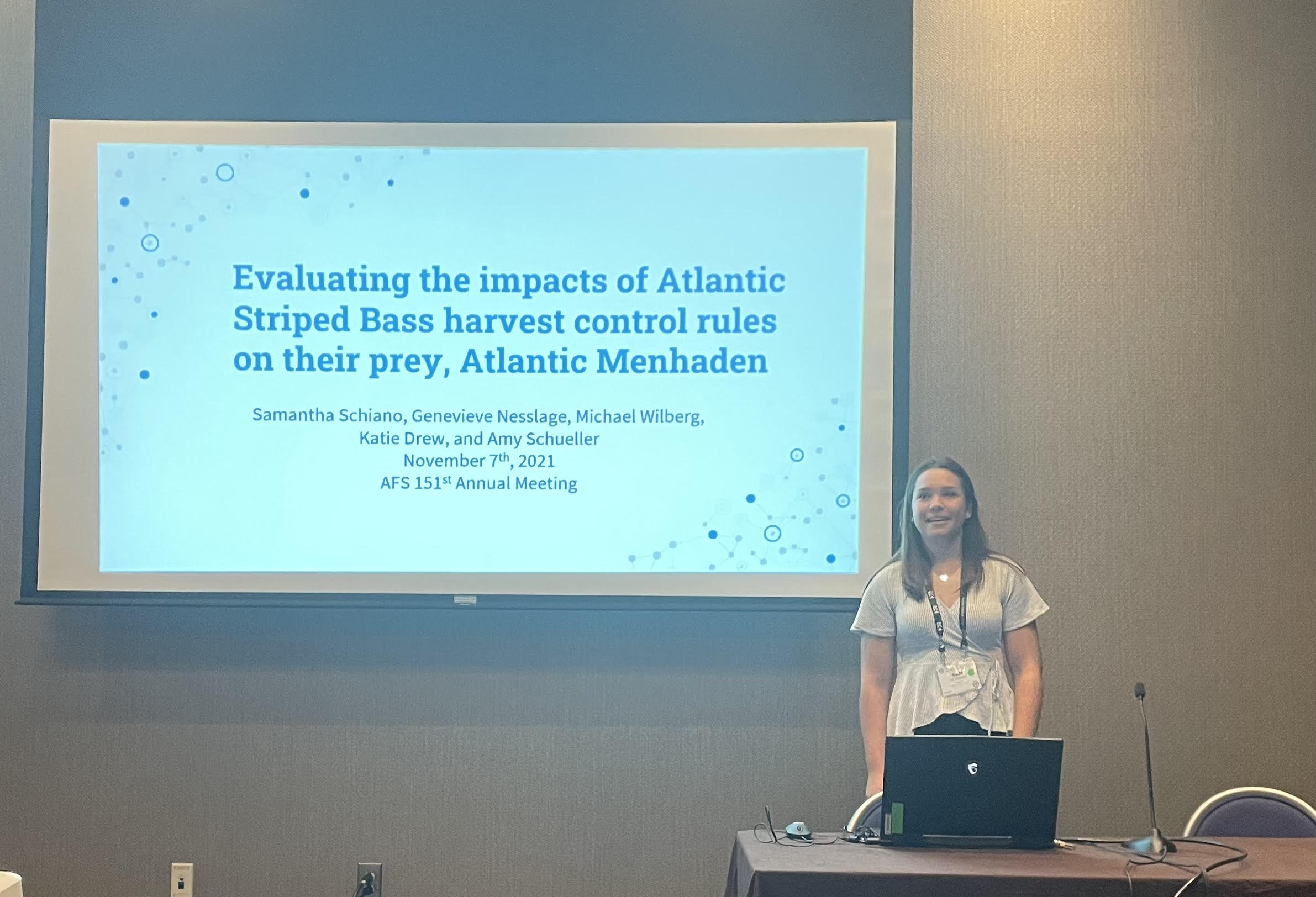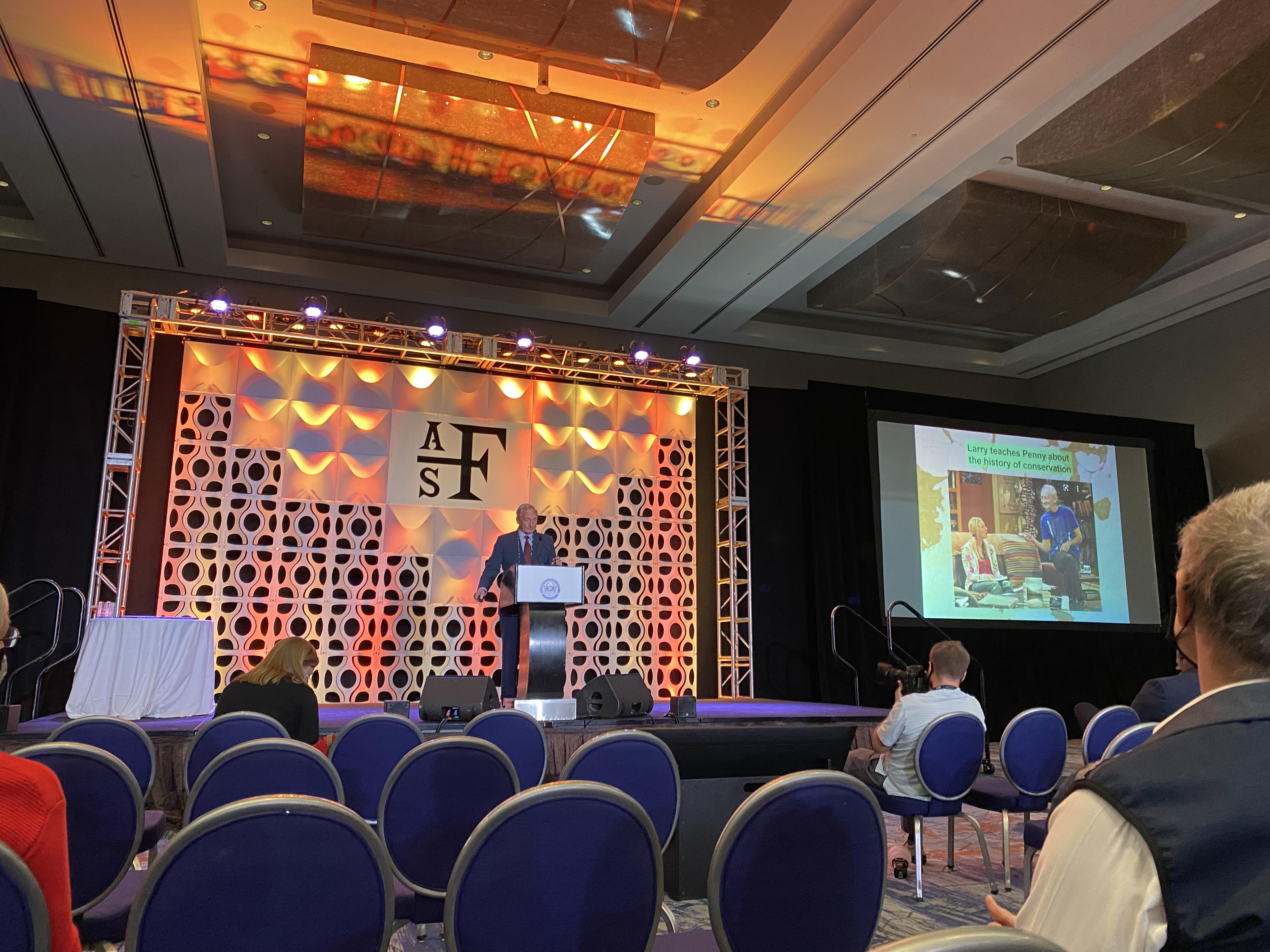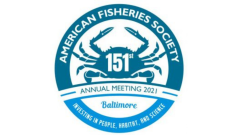Knauss legislative fellowships in Congress help build careers — and they're fun and educational. See our video and fact sheet for details.
A Fish out of Water: How I survived my first national marine science conference
Every year, the American Fisheries Society (AFS) hosts a national conference to gather scientists, managers, and interested parties from around the country to share their research and network. Because I am a graduate student, and the scientists who attend these meetings are typically extremely accomplished in their field, these types of conferences seem daunting.
This one in particular felt above my expertise. I am pursuing my master’s degree at the University of Maryland Center for Environmental Science (UMCES) Chesapeake Biological Laboratory in simulating the impacts of striped bass (Morone saxatilis) harvest control rules on their prey, Atlantic menhaden (Brevoortia tyrannus). The topic is one of great interest for fisheries managers and anglers alike, especially here in the Chesapeake Bay region, with the last large-scale menhaden fishery in the country being located in Virginia.
Due to the importance of these species to the region, I am modelling how harvesting impacts both their populations and fisheries. I am taking an ecosystem-based approach with the goal to provide managers with options to harvest both striped bass and menhaden in the future. For example, we could model if striped bass were continually harvested, as they are now, for the next 50 years, we would see the impact to not only the striped bass population, but also the menhaden population. This model is very complex, but it allows us to explore a range of factors that can impact the population such as predation, interactions from other prey, and changes in recruitment from year to year.

However, when the opportunity came around to share the beginning of my master’s thesis work on menhaden and striped bass at the 151st annual AFS national conference last fall, I didn’t want to say no. I’d never presented at an event like this before, and my mentors, peers, and colleagues would all be gathered to watch me present the early stages of my research. I wasn’t sure what feedback I would receive, or what questions attendees would ask. I was also not sure what to expect since my work wasn’t completely finished. I was presenting preliminary results to these amazing people, so the results were not set in stone, especially for a simulation study, where the result can change depending on what we put into the model.
How to prepare? My advisors provided a lot of guidance and helpful tips going into the conference and helped me manage my expectations when I got there. I was grateful, because there’s nothing quite like walking into a huge hotel ballroom knowing all of those eyes will soon be on you!`

Here are a few things I learned:
- Memorize your talk
This was one very helpful piece of advice that my advisor gave me that made my talk just that much better. I was extremely nervous to present in front of such a technical audience. I am not one to be shy in front of others and don’t mind public speaking, but it is still daunting going into something in which your audience could be someone you want to work for or with one day. Memorizing the presentation limited any “uhs” and “likes” and helped me present myself as a professional. - Bring a writing implement
Taking notes on research that was either interesting or related to my research helped me stay engaged. It also helped me remember parts of their talk when it came time for questions. - You can ask questions, too
The people attending the conference are also there to learn and share their research! It did seem daunting to me as well, but when I put myself out there, I learned a lot. I was definitely shyer than my true self for the first few talks I attended, but when something piqued my interest and I had a question, I asked it. I truly believe if I didn’t ask the questions I had, I would have regretted it. - It’s best to plan ahead
Even at a five-day conference, I still felt myself short on time and eager to get to more talks than I could actually attend. I would highly suggest making a deliberate and dedicated plan on which talks to attend before the conference starts, or at least a day before those talks. I would also keep in mind that the talks are back-to-back so unless the next talk is in the room next to you or close by, you will most likely be late or miss the next one.
Both attending the conference and presenting at it reinvigorated my passion for marine science. I would highly suggest attending conferences in one’s profession, especially for students and early scientists. I loved sharing space with people who have the same deep interest for the fisheries world as I do. There is still much to learn as I continue in my studies and get started in my career.
Graphic, top left: The logo for the American Fisheries Society 2021 annual meeting. Credit: AFS
See all posts to the Fellowship Experiences blog

